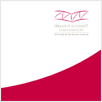Welcome to the AI Ethics Research Hub at Helmut Schmidt University!
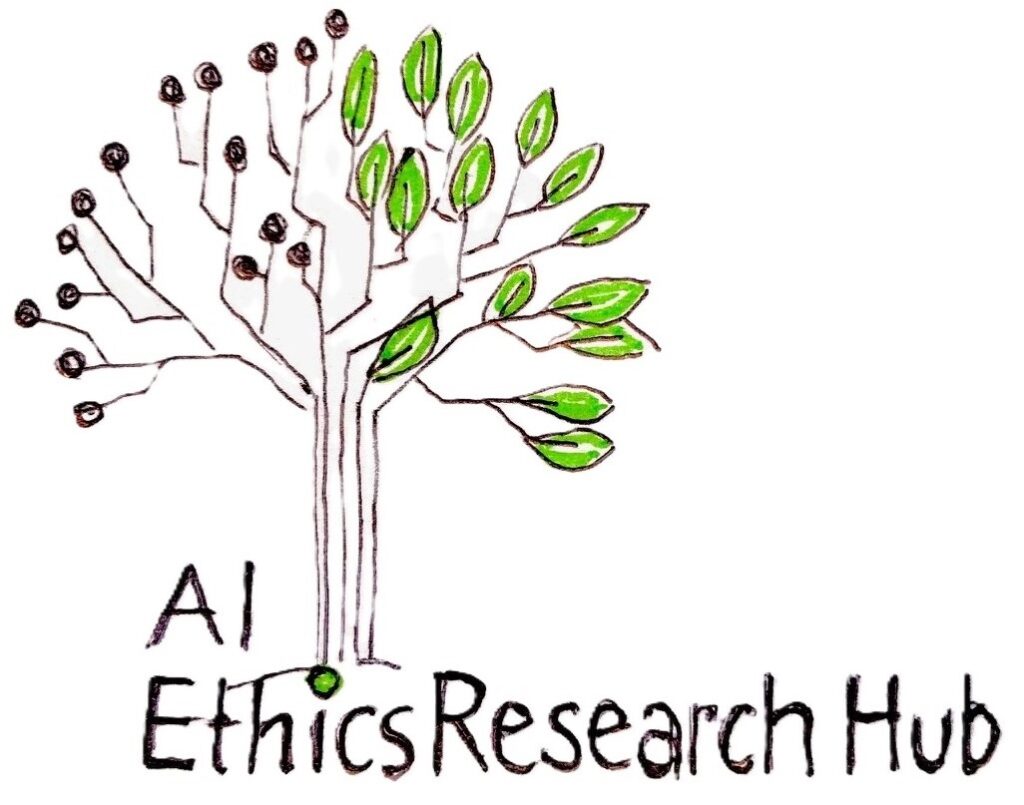
The AI Ethics Research Hub unites diverse research groups and expertise at Helmut Schmidt University/University of the Federal Armed Forces Hamburg around a single vision: shaping the future of AI with ethics at its core. We connect experts across disciplines, develop projects, and turn ideas into methods, tools, and impact for the research community and the wider public.
E-Mail: [email protected]
Team
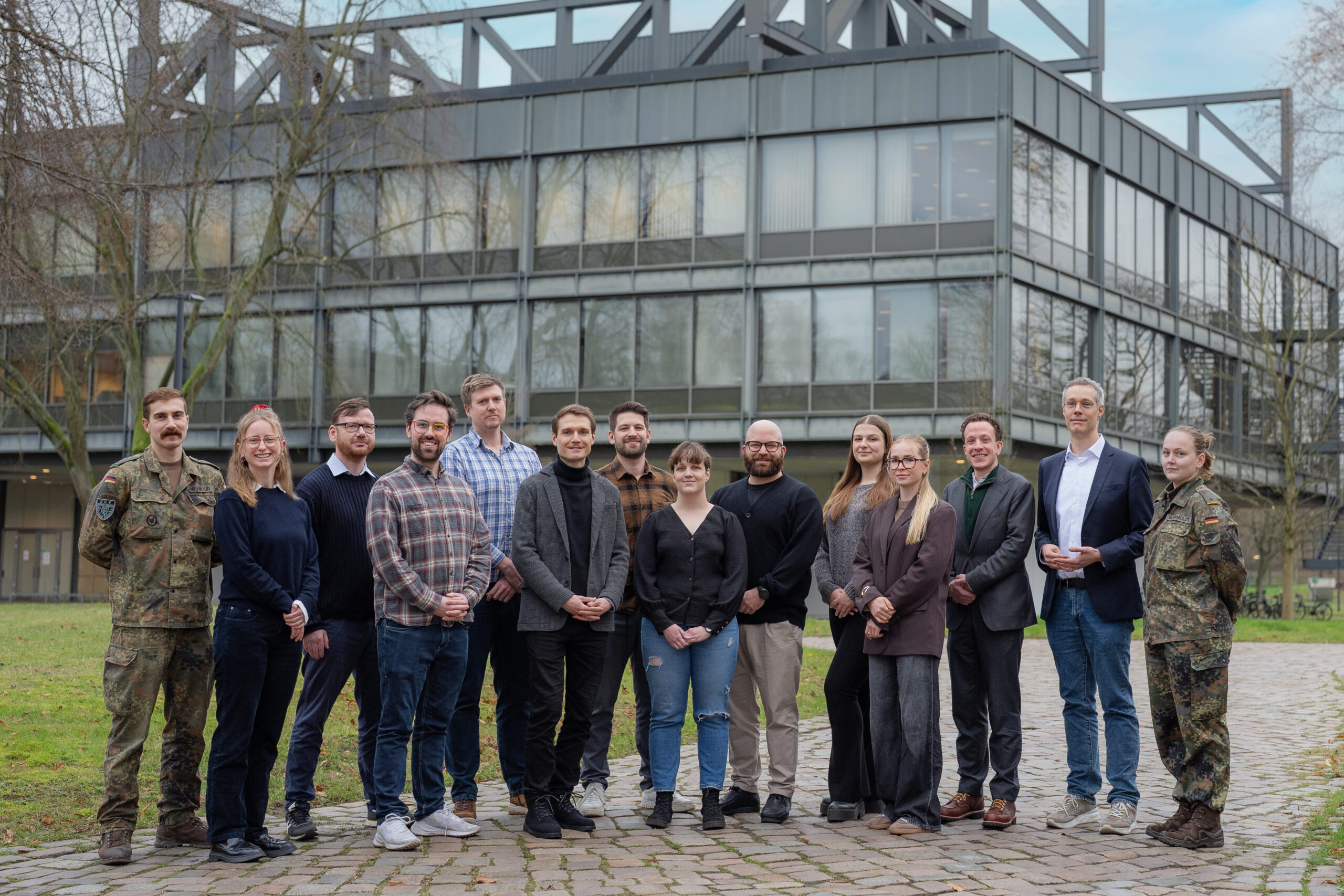
Prof. Dr. habil. Gerhard Schreiber

Gerhard Schreiber is Professor of Social and Technological Ethics and AI Officer at Helmut Schmidt University, co-chair of the HSU-AI Institute, and head of the AI Ethics Research Hub. His research bridges social ethics, which examines the social dimensions of normative issues and epistemic uncertainties, and technology ethics, which critically reflects on technologies across their design, development, deployment, and use. He studies human-technology relations and interdependencies, analyzing how people use technology and how technology, in turn, affects people. Conceptually, he is developing a responsibility framework that addresses agency, authorship, and the extent, limits, and conditions for delegating human judgment and decision-making authority to AI systems.
His recent publications include:
- Söllner, M. / Benlian, A. / Bretschneider, U. / Knight, C. / Ohly, S. / Rudkowski, L. / Schreiber, G. / Wendt, D.: „ChatGPT and Beyond: Exploring the Responsible Use of Generative AI in the Workplace – An Interdisciplinary Perspective“, in: Business & Information Systems Engineering (BISE), vol. 67(2), 2025, pp. 289–303.
- Schreiber, G.: „Data Toxicality: A Techno-Philosophical Inquiry into Digital Harm“, in: Filozofia, vol. 80(3), 2025, pp. 300–313.
- Schreiber, G.: „Ausgemenschelt? Mensch-Maschine-Interaktionen im Zeitalter von KI“,, in: Es menschelt – Phänomene des Mensch-Seins in interdisziplinärer Perspektive, ed. by Ulrike Peisker / Jochen Schmidt / Michael Roth, Baden-Baden: Alber 2025, pp. 177–189.
- Schreiber, G.: „Reconsidering Agency in the Age of AI“, in: Filozofia, vol. 79(5), 2024, pp. 529–537.
- Schreiber, G. / Ohly, L. (ed.): KI:Text. Diskurse über KI-Textgeneratoren, Berlin/Boston: De Gruyter 2024. (581 p.)
- Schreiber, G. / Waschka, M. (ed.): AI and Dis/ability: Co-Constitution, Appropriation, and Design, Berlin/Boston: De Gruyter 2026 (forthcoming).
- Rischer, M. / Ehrhardt, J. / Schreiber, G.: „Balancing offensive language and freedom of expression in AI speech assistants: An ethical and algorithmic perspective“, in: Chatbots and Human-Centered AI, 9th International Symposium, CONVERSATIONS 2025, Lübeck, November 12-13, Berlin: Springer Nature, 2026 (forthcoming).
Contact: [email protected]
Dr. Alexander Antonov
Alexander Antonov is a postdoctoral researcher at the AI Ethics Research Hub, investigating the social, ethical, and legal implications of the development and deployment of AI systems in the public sector. In particular, he contributes to the DTEC-SHM sub-project „Digitalisierung von Infrastrukturbauwerken zur Bauwerksüberwachung: Structural Health Monitoring“, where he examines ethical principles and frameworks for AI-assisted decision-making processes in the context of critical infrastructure.
Prior to joining the Helmut Schmidt University, Alexander completed a Ph.D. in Public Administration at TalTech University, Estonia, where he co-taught the graduate course „Human Rights, Ethics and Technology“. He holds an M.Sc. in International Security and Law and a B.Sc. in European Studies from the University of Southern Denmark.
His recent publications include:
- Antonov, A.: „Human Rights-Based Legal Conditions for Trustworthy AI“, in: TalTech Press, 2024, https://doi.org/10.23658/taltech.55/2024.
- Antonov, A., Häring, T., Korõtko, T., Rosin, A., Kerikmäe, T., & Biechl, H.: „Pitfalls of Machine Learning Methods in Smart Grids. A Legal Perspective. In Proceedings – 2021 International Symposium on Computer Science and Intelligent Controls (ISCSIC)“, 12-14 November 2021, Rome (pp. 248-256) 2021, Institute of Electrical and Electronics Engineers (IEEE), Danvers, https://doi.org/10.1109/ISCSIC54682.2021.00053.
- Antonov, A., & Kerikmäe, T.: „Trustworthy AI as a Future Driver for Competitiveness and Social Change in the EU“, in: D. R. Troitiño, T. Kerikmäe, R. M. de la Guardia, & G. Á. P. Sánchez (Eds.): The EU in the 21st Century. Challenges and Opportunities for the European Integration Process (pp. 135−154), Springer 2020, https://doi.org/10.1007/978-3-030-38399-2_9.
Contact: [email protected]

Kathrin Bruder
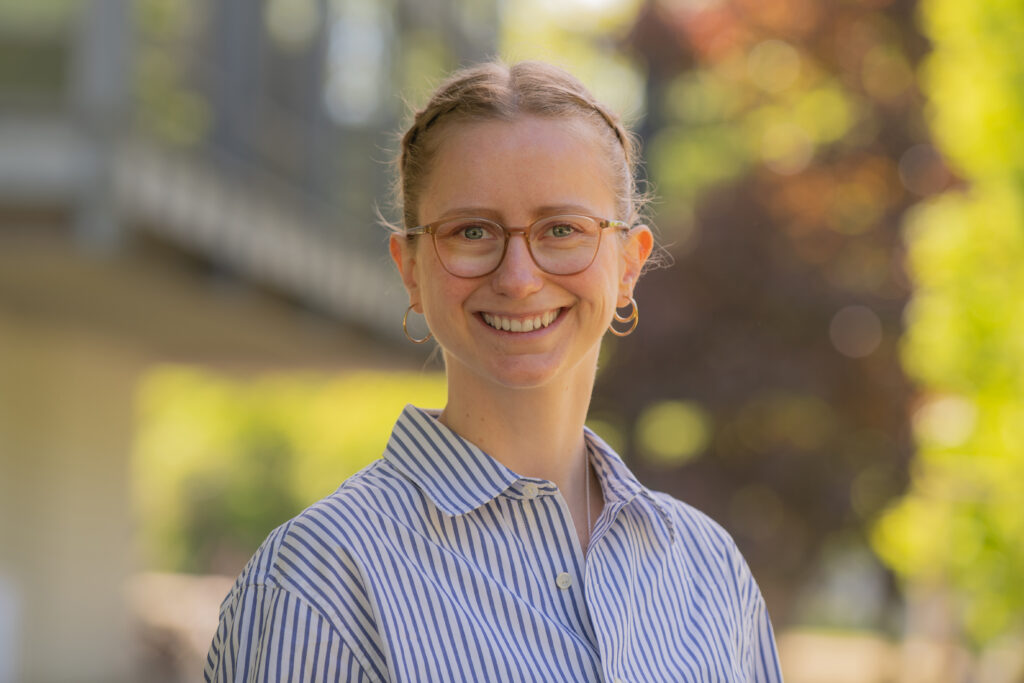
Kathrin Bruder is a research associate at the Chair of Protestant Theology and research member of the AI Ethics research Hub. She is pursuing a doctorate on philosophical-anthropological and theological-ethical questions concerning artificial intelligence, analyzing transhumanist and posthumanist currents. Her further research interests lie in the fields of the ethics and philosophy of technology, particularly in the areas of artificial intelligence, robotics, human–machine interaction, and subjectivity. In addition, her work addresses topics in social ethics, such as sexual and gender ethics.
Her recent publications include:
- Burghardt (now: Bruder), K: „AI Text Generators and the Truth Paradigm. Considerations from a Phenomenological Perspective“, in: Filozofia, vol. 79(5), 2024, pp. 514–528.
- Burghardt (now: Bruder) K.: „Digitales Selbstbewusstsein. Philosophische Interventionen“, in: Winter-Tietel, R. / Ohly, L. (ed.): Theologie Angesichts des Digitalen. Beiträge zu den Theologischen Herausforderungen durch Digitalität und Digitalisierung, Frankfurt/Main: Peter Lang 2023.
- Burghardt (now: Bruder) K.: „Wenn Maschinen als Menschen zu begegnen scheinen. Anerkennung unter der Herausforderung transhumanistischer Visionen“, in: Ohly, L. /Gerber, U. (ed.): Anerkennung. Personal – sozial – transsozial, Leipzig: EVA 2021.
Contact: [email protected]
Dr. Benedikt Bussmann
Benedikt Bussmann is a postdoctoral researcher at the AI Ethics Research Hub. He
studied educational sciences between 2012 and 2016 at the Helmut-Schmidt-
University/ University of the Bundeswehr in Hamburg. Besides his service in the
German Armed Forces he finished his doctoral thesis in 2024 on the topics of military
ethics, ethical education and decision processes. He is working on the
interdisciplinarity in AI considering the interdependence of humans and AI application
systems.
His recent research include:
- Bussmann, B.: „Hyperwar and the dehumanisation of war. An ethical consideration“, HSUopen (pending).
- Bussmann, B.: „Spielerisch in den Abgrund blicken, in: Ethik und Gesellschaft, (pending).
Contact: [email protected]

Dr. Simon Egbert

Simon Egbert is a postdoctoral researcher at the AI Ethics Research Hub, where he explores the social, ethical, and organizational implications of data‑driven and AI‑supported practices. His research focuses on the epistemic foundations, governance challenges, and societal consequences of algorithmic technologies, with particular emphasis on predictive analytics, platformization, and generative AI.
Before joining Helmut Schmidt University in 2026, Simon held academic positions at the University of Bremen, the University of Hamburg, the Technical University of Berlin, and Bielefeld University. He earned his Ph.D. in Sociology from the University of Hamburg in 2018 and holds an M.A. in International Criminology as well as a B.A. in Social Sciences.
His recent publications include:
- Heimstädt, M. / Egbert, S.: „Actionable predictions: How designers of algorithmic systems calibrate criminal futures“, in: Big Data & Society, vl. 12(2), 2025, pp. 1-14.
- Egbert, S.: „Platforms“, in: Kaufmann, M. / Lomell, H. M. (Eds.): Handbook on Digital Criminology. Berlin: De Gruyter, 2025, pp. 353-361.
- Egbert, S. / Ulbricht, L.: „Data Integration and Analysis Platform: A Conceptual Proposal“, in: Information, Communication & Society, Online First, 2024, pp. 1-22.
- Jarke, J. / Prietl, B. / Egbert, S. / Boeva, Y. / Heuer, H. / Arnold, M. (Eds.): Algorithmic Regimes: Interactions, Politics, and Methods. Amsterdam: Amsterdam University Press 2024.
- Egbert, S. / Galis, V. / Gundhus, H. O. I. / Wathne, C. T.: „The Platformization of Policing: A Cross-National Analysis“, in: Kuldova, T. Ø. / Gundhus, H. O. I. / Wathne, C. T. (Eds.): The Palgrave Handbook of Cultures of Policing and Intelligence in the Big Data Era. Volume 1: Policing and Intelligence in the Global Big Data Era. Basingstoke: Palgrave 2024, pp. 349-392.
- Ulbricht, L. / Egbert, S.: „In Palantir we trust? Regulation of data analysis platforms in policing“, in: Big Data & Society, vol. 11(3), 2024, pp. 1-15.
- Egbert, S.: „Predictive Analytics. A Sociological Perspective“, in: Borch, C. / Pardo-Guerra, J. P. (Eds.): Oxford Handbook of the Sociology of Machine Learning. Oxford: Oxford University Press 2024, pp. 715-736.
Dr. Andreas Holzbauer
Lukas Johrendt
Lukas Johrendt is a researcher at the Chair of Protestant Theology and research member of the AI Ethics research Hub. His research focuses primarily on socio-ethical and legal-ethical issues, including the use and regulation of AI systems in higher education contexts. He is a member of the Senate Committee for AI Issues at Helmut Schmidt University. His other research interests lie in the areas of gender and sexual ethics, including issues of sexuality in digitized and datafied societies. He also focuses his research on questions of political ethics and political theory (Critical theory / radical democratic theory / poststructuralism).
Contact: [email protected]
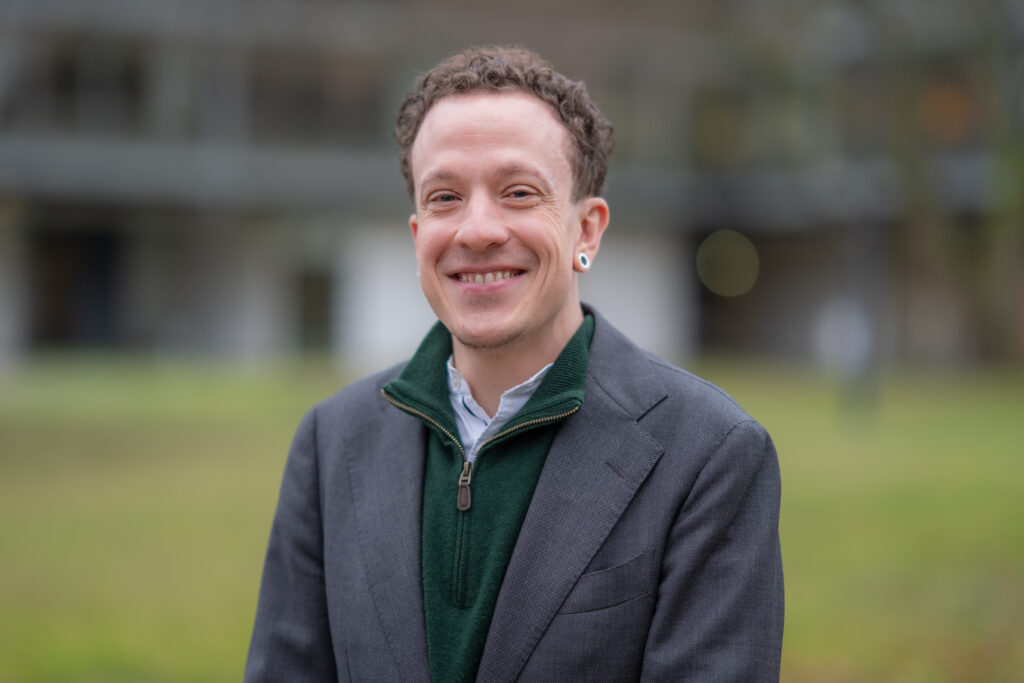
Dr. Sylvia Kühne
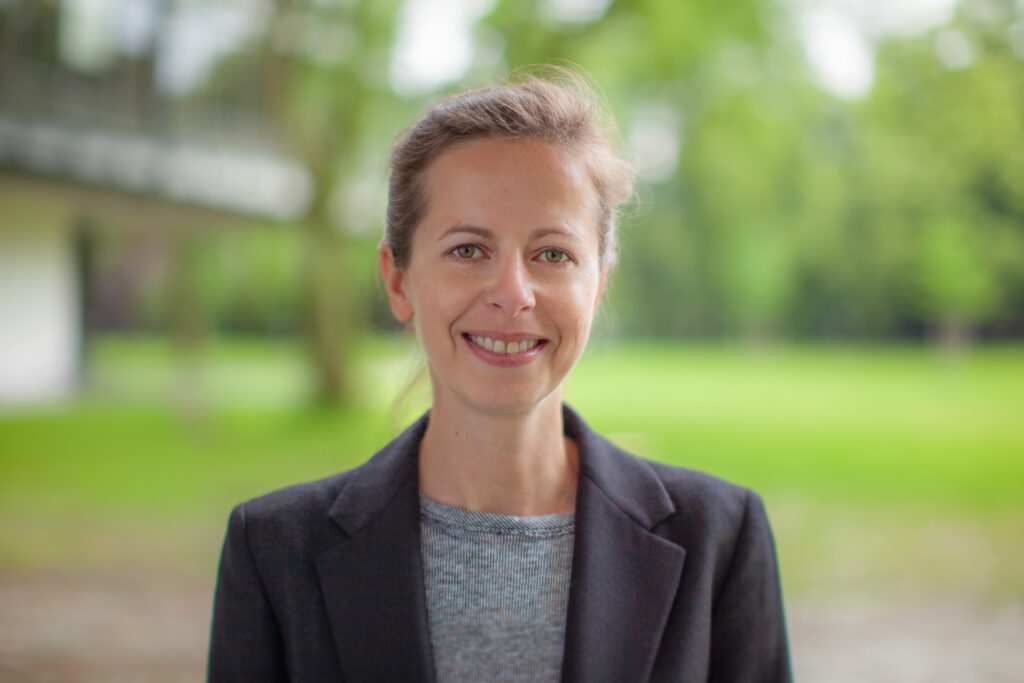
Sylvia Kühne is a postdoctoral researcher at the AI Ethics Research Hub at the Chair
Chair of Social and Technology Ethics. She studied sociology at the FU Berlin and
international criminology the University of Hamburg, where she received her PhD
with a thesis entitled “Biometrics as ‘Soft Surveillance’. On the acceptance of
fingerprint”. She has conducted research on the acceptance, trust and socio-
technical usability of security technologies, especially biometrics and systems of
anticipatory truth verification.
In her current research she is exploring the social, epistemic, and political dimensions
of emerging technologies, with a particular focus on artificial intelligence and
algorithmic systems. She is interested in how new technological infrastructures and
research practices shape what counts as knowledge, evidence, and rationality, and
how they reconfigure relations between humans, machines, and institutions.
Her recent publications include:
- Kühne, S.: „Let the user figure it out. Revisiting Usability and Security of eGates in Laboratory Research“, in: International Journal of Human-Computer Interaction, pp.1-22, 2025, https://doi.org/10.1080/10447318.2025.2574510.
- Kühne, S.: „Wargaming in the Age of AI: From synthetical immersion to analytical
simulation? In: Niggemann, Oliver; Schreiber, Gerhard; Koch, Wolfgang; Heesch, René; Ludwig, Björn; Rottmann, Josef; Schmidt, Johannes; Schraven, Joshua (Hg.): Artificial Intelligence in Security and Defense Proceedings of the Workshop AI4SD, 50–57. 2026. (zus. mit Gerhard Schreiber). DOI: 10.24405/21625 - Kühne, S.: „Gut Feelings and Algorithms. Searching for Harmful Intentions in Airport
Security Processes“, in: Engaging Science, Technology, and Society, Vol. 10(3) (Co-
author: Bettina Paul), 2024, DOI: 10.17351/ests2023.2337. - Kühne, S.: “I Don’t Know If It wanted Me to Dance.” On Leading and Being Led in Human-eGate Interaction“, in: Tecnoscienza. Italian Journal of Science and Technology
Studies, Vol.14(2). (Co-author: Bettina Paul), 2024, DOI:10.6092/issn.2038-3460/17902. - Kühne, S.: „Algorithmen und Künstliche Intelligenz als Game Changer? Moderne
Waffensysteme zwischen Erwartung und Wirklichkeit.“ [Algorithms and Artificial
Intelligence as Game Changers? Modern weapon systems between expectation and
reality.] Research Report DSF. (Co-author: Christian Alwardt), 2023,
https://ifsh.de/file/research/project_documents/DSF-56-Alwardt_online.pdf.
Contact: [email protected]
Mareike Proske, M.A.
Since October 2025 Mareike Proske is a research associate at the Chair of Protestant Theology with a special focus on Social and Technological Ethics at Helmut Schmidt University. From 2023 to 2025 she did her master’s degree in Social Pedagogy and Theology for Vocational School Teaching at Leuphana University Lüneburg. Between 2020 and 2023 Mareike Proske did her Bachelor’s degree in Social Pedagogy and Theology for Vocational School Teaching at Leuphana University Lüneburg and from 2011 to 2014 she did a Bachelor’s degree in „Education and Upbringing in Childhood“ at HAWK Hildesheim.
Contact: [email protected]
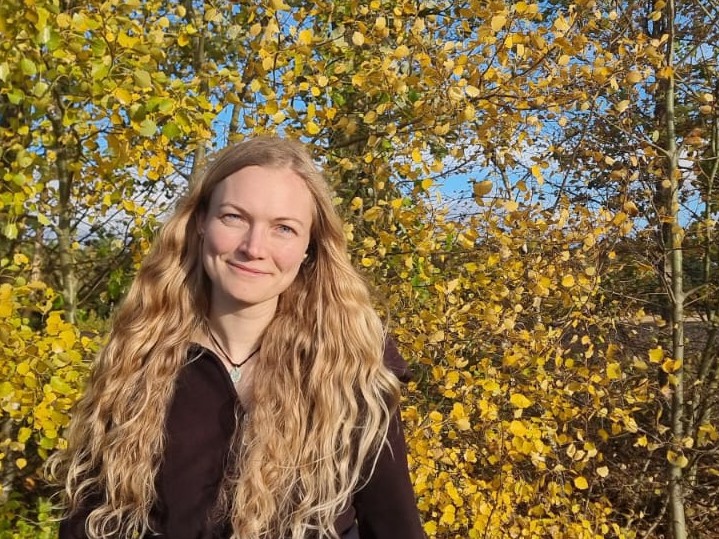
Madeleine Rischer
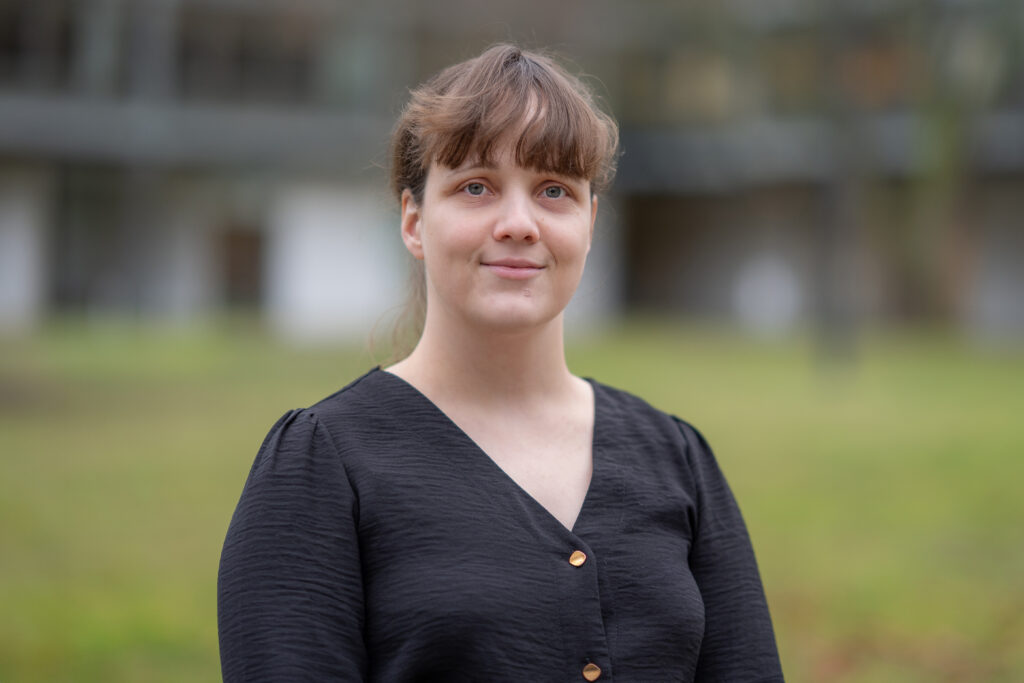
Madeleine Rischer is a research associate at the AI Ethics Research Hub. Her research lies at the intersection of ethics, artificial intelligence, and society, with a focus on designing human-centered, fair, and trustworthy AI systems that serve the common good. She is pursuing her PhD on “Designing Embodied Social Robots for PTSD Care: Towards Trustworthy and Ethical AI Companions.” Her applied research and volunteer work focus on developing accessible and ethical AI systems, including an AI-supported communication app for people with cognitive, speech, and language impairments. Before joining the AI Ethics Research Hub, Madeleine worked as a research associate at the Professorship of Computer Science in Mechanical Engineering at HSU, where she contributed to projects on fair AI through the principle of Ethics by Design in social contexts. She also participated in research on unsupervised learning applied to radar data and taught undergraduate computer science courses.
Her recent publications include:
- Ray, L., Jordan (Rischer), M., Arcone, S.A., Kaluzienski, L.M., Walker, B., Ortquist Koons, P., Lever, J., Hamilton, G.: Velocity field in the McMurdo shear zone from annual ground penetrating radar imaging and crevasse matching. Cold Regions Science and Technology, 173, 103023, 2020. https://doi.org/10.1016/j.coldregions.2020.103023.
- Rischer, M. / Ehrhardt, J. / Schreiber, G.: „Balancing offensive language and freedom of expression in AI speech assistants: An ethical and algorithmic perspective“, in: Chatbots and Human-Centered AI, 9th International Symposium, CONVERSATIONS 2025, Lübeck, November 12-13, Berlin: Springer Nature, 2026 (forthcoming).
Contact: [email protected]
Dr. Daniel Tramp
Daniel Tramp is a postdoctoral researcher at the AI Ethics Research Hub. He addresses philosophical and ethical challenges at the intersection of Artificial Intelligence (AI), education, and society. His work focuses on (practical) philosophical questions surrounding AI and digitalization, informed by classical themes of (educational) philosophy. He explores questions of trust, transparency, accountability, and responsibility in the use of AI – examining what makes AI systems trustworthy and what their use means for human agency, understanding, and the aims of education. He also examines issues of judgment and truth in the digital age when confronted with fake news, conspiracy myths, and AI-related biases and discrimination.
He brings to this work a diverse background: He studied Philosophy and Sociology (Magister Artium) in Frankfurt am Main and Leipzig, where he also completed his doctorate in Philosophy. He has worked as a programmer, teacher, and research associate in the „Artificial Intelligence enhanced Education Lab“ (AIEduLab) project at the Department of Media Education at Europa-Universität Flensburg.
His recent publications include:
- Tramp, D.: „Ethische Räume im Lichte zukünftiger Kompetenzen“, in: Reihe Erfahrungsorientierte Bildungsforschung. Medienpädagogische Erfahrungsräume, Beltz-Verlag 2025 (forthcoming).
- Tramp, D.: „xAI als praktisch-soziales Problem des Vertrauens“, in: Katrin Späte, K.; Dürkop-Henseling, L.; Techen, A. (ed.): KI in der soziologischen Berufspraxis. Springer VS 2025 (forthcoming).
- Tramp, D.: „Mediale Distanz als medienpädagogische Grundstruktur“, in: Tagungsband „Pädagogisch-anthropologische Grenzziehungen: Menschenbilder in der Bildungswissenschaft“, Österreichische Gesellschaft für Forschung und Entwicklung im Bildungswesen (ÖFEB), 2025 (forthcoming).
Contact: [email protected]

Maximilian Waschka

Maximilian Waschka is coordinating the process of data annotation in our DIWOP-financed research project on an AI-based companion app that translates spoken language into German E2R language with Natural Language Processing. In this research project, he empirically studies collaborative software development with people with dis-/abilities in the fields of AI-ethics and media dis-/ability studies. For this project, he is currently organizing the conference „AI and Dis-/ability: Co-Constitution, Appropriation, and Design” (November 12-13, 2025) with Gerhard Schreiber and Mareike Proske, which will be followed by double-blind peer reviewed open access publication of the conference proceedings in July 2026.
His background is in feminist media studies as part of the cultural studies program at
Leuphana University Lüneburg. He also founded a startup in the field of AI in
medicine technology, which he successfully exited in 2021. You can read his Master
thesis “Algorithmic governmentality. A Grounded Theory on the Governance of
Academic Writing Cultures with Plagiarism Detection Software” here.
In his research leading up to his dissertation, he focuses on analyzing AI as algorithmic
governmentality or environmentality in specific empirical contexts.
His recent publications include:
- Schreiber, G. / Waschka, M. (ed.): AI and Dis/ability: Co-Constitution, Appropriation, and Design, Berlin/Boston: De Gruyter 2026 (forthcoming).
Contact: [email protected]
The Hub Activities
Ongoing Projects
- Moderating Offensive Language in Augmentative and Alternative Communication Systems
- Integrating Ethics by Design in Autonomous Systems
- Ethical Frameworks for AI-Driven Structural Health Monitoring of Critical Infrastructure
- Ethics and Regulation of AI in Defence Technologies
- Data Toxicality (Datentoxikalität)
- Simulating Ethical Dilemmas in AI-Driven Warfare
Presentations and Lectures (Selection)
- September 11, 2024: On the Necessity to protect earthly existence – Peace as the soldiers self-conception, Ushuluddin Faculty, Syarif Hidayatullah Jakarta Islamic State University (Benedikt Bussmann).
- January 15, 2025: „Verstehst Du auch, was Du generierst?“ – KI und die Frage des Verstehens, Studientag 2025 – Digitaler Geist? KI und die Geisteswissenschaften, Martin-Luther-Universität, Halle-Wittenberg (Gerhard Schreiber).
- February 26, 2025: Data Toxicality: Observations and Reflections from a Techno-Ethical Perspective, Lecture series “Computation and Data”, HSU AI, Hamburg (Gerhard Schreiber). [Review]
- March 21, 2025: Prolegomena to AI Ethics: Challenges and Perspectives, The 8th Machine Learning 4 Cyber Physical Systems (ML4CPS), Fraunhofer-Forum, Berlin (Gerhard Schreiber).
- May 7, 2025: KI-Ethik@MIL, KI@BW25, Helmut Schmidt University / University of the Federal Armed Forces Hamburg (HSU/UniBwH) (Gerhard Schreiber).
- May 8, 2025: What is Autonomy?, ZiF Workshop „Rearticulating Autonomy. Artificial Intelligence and Digital Autonomy in Higher Education“, ZiF – Center for Interdisciplinary Research, Bielefeld University (Gerhard Schreiber).
- May 10, 2025: xAI als praktisch-soziales Problem des Vertrauens, Tagung für angewandte Sozialwissenschaften (TAS), Berufsverband Deutscher Soziologinnen und Soziologen e.V. (BDS) (Daniel Tramp).
- June 3, 2025: „Virtuelle Simulation, reales Unrecht“. Zur ethischen Beurteilung KI-generierter Missbrauchsabbildungen, ZiRR – Zentrum für interdisziplinäre Studien zu Religion und Recht, Universität Mainz (Gerhard Schreiber).
- June 5, 2025: Pandoras Büchse? Zur ethischen Verantwortbarkeit der Nutzung von KI im militärischen Bereich, Referat für Technik- und Wissenschaftsethik, Hochschule Karlsruhe (Gerhard Schreiber).
- June 20-22, 2025: Meinen, Wissen, Glauben – Auf dem Weg zur Wahrheit, Conference „APHIN V – ‚Meinen, Glauben, Wissen, Hoffen‘“, Enkirch an der Mosel (Daniel Tramp).
- July 2, 2025: KI und Verstehen, Heinrich-Heine-Universität Düsseldorf (Gerhard Schreiber).
- July 3, 2025: Grenzen im Fluss: Mensch-Maschine-Interaktionen im Zeitalter der KI, Universität Münster (Gerhard Schreiber)
- July 11-12, 2025: Mediale Distanz als medienpädagogische Grundstruktur, Conference „Pädagogisch-anthropologische Grenzziehungen: Menschenbilder in der Bildungswissenschaft“, Österreichische Gesellschaft für Forschung und Entwicklung im Bildungswesen (ÖFEB), Sektion ‚Allgemeine Erziehungswissenschaft‘, Universität Innsbruck (Daniel Tramp).
- September 4, 2025: Bullshit als Waffe. Toxikalische Informationsräume als Herausforderung für demokratische Resilienz (Keynote), (Aus)Bildungskongress der Bundeswehr 2025, Hamburg (Gerhard Schreiber).
- October 7, 2025: From Genomic Risk to Algorithmic Score: Techno-Ethical Perspectives on AI-Driven Genetic Discrimination, 7th Weissenburg Symposium, Weißenburg (Gerhard Schreiber)
- October 26, 2025: Hyperwar and the dehumanisation of war. An ethical consideration, ECAI workshop: AI for security and defence, Bologna (Benedikt Bussmann).
- November 17, 2025: Geist und Seele angesichts KI, Gesellschaft für Wissenschaftsforschung (GeWiF), Berlin (Gerhard Schreiber).
- November 27, 2025: Von der Hand in die Cloud. Mensch, Maschine, Arbeit im Zeitalter der KI, DiWop-Netzwerktagung, Hamburg (Gerhard Schreiber).
- December 15, 2025: Die Gefahren eines entgrenzten Krieges – Podiumsdiskussion über die Ethik von KI im Militärischen, Leuphana Universität, Lüneburg (Gerhard Schreiber).
Recent Publications
Forthcoming
- Schreiber, G. / Waschka, M. (ed.): AI and Dis/ability: Co-Constitution, Appropriation, and Design, Berlin/Boston: De Gruyter 2026 (forthcoming).
- Rischer, M. / Ehrhardt, J., / Schreiber, G.: Moderating Offensive Language in Augmentative and Alternative Communication Systems (forthcoming).
- Schreiber, G.: „Text aus der Retorte. KI-Textgeneratoren aus technikethischer Perspektive“, in: Humanität und digitale Ethik. Theologische und philosophische Perspektiven, ed. by Christina Costanza and Constantin Plaul, Tübingen: Mohr Siebeck 2025 (forthcoming)
- Schreiber, G., „Prolegomena zu einer Ethik der KI“, in: Erzählen und Ethik in der digitalen Transformation, ed. by Eckart Voigts, Julia Schöll, Rüdiger Heinze and Stefan Heuser, Bielefeld: transcript 2025 (forthcoming)
- Bussmann, B.: „Hyperwar and the dehumanisation of war. An ethical consideration“, HSUopen (pending).
- Bussmann, B.: „Spielerisch in den Abgrund blicken“, in: Ethik und Gesellschaft, (pending).
- Tramp, D.: „Ethische Räume im Lichte zukünftiger Kompetenzen“, in: Reihe Erfahrungsorientierte Bildungsforschung. Medienpädagogische Erfahrungsräume, Beltz-Verlag 2025 (forthcoming).
- Tramp, D.: „xAI als praktisch-soziales Problem des Vertrauens“, in: Katrin Späte, K.; Dürkop-Henseling, L.; Techen, A. (ed.): KI in der soziologischen Berufspraxis. Springer VS 2025 (forthcoming).
- Tramp, D.: „Mediale Distanz als medienpädagogische Grundstruktur“, in: Tagungsband „Pädagogisch-anthropologische Grenzziehungen: Menschenbilder in der Bildungswissenschaft“, Österreichische Gesellschaft für Forschung und Entwicklung im Bildungswesen (ÖFEB), 2025 (forthcoming).
2025
- Söllner, M. / Benlian, A. / Bretschneider, U. / Knight, C. / Ohly, S. / Rudkowski, L. / Schreiber, G. / Wendt, D.: „ChatGPT and Beyond: Exploring the Responsible Use of Generative AI in the Workplace – An Interdisciplinary Perspective“, in: Business & Information Systems Engineering (BISE), vol. 67(2), 2025, pp. 289–303.
- Schreiber, G.: „Data Toxicality: A Techno-Philosophical Inquiry into Digital Harm“, in: Filozofia, vol. 80(3), 2025, pp. 300–313.
- Schreiber, G.: „Ausgemenschelt? Mensch-Maschine-Interaktionen im Zeitalter von KI“,, in: Es menschelt – Phänomene des Mensch-Seins in interdisziplinärer Perspektive, ed. by Ulrike Peisker / Jochen Schmidt / Michael Roth, Baden-Baden: Alber 2025, pp. 177–189.
- Schreiber, G.: „Beyond Code – The Crucial Role of Responsibility in Technology Ethics“, in: Business & Information Systems Engineering (BISE), Bd. 67(2), 2025, pp. 297–299.
- Kühne, S.: „Let the User Figure It Out. Revisiting Usability and Security of eGates in Laboratory Research“, in: International Journal of Human-Computer Interaction, pp. 1–22, 2025, https://doi.org/10.1080/10447318.2025.2574510.
- Kühne, S.: „Wargaming in the Age of AI: From synthetical immersion to analytical
simulation?“ Lecture at the ECAI 2025 [Workshop W33 AI in Security and Defense
(AI4SD)], Bologna, Italy, 26.10.2025.
2024
- Schreiber, G.: „Reconsidering Agency in the Age of AI“, in: Filozofia, vol. 79(5), 2024, pp. 529–537.
- Schreiber, G. / Ohly, L. (ed.): KI:Text. Diskurse über KI-Textgeneratoren, Berlin/Boston: De Gruyter 2024. (581 p.)
- Ohly, L., Schreiber, G.: „KI, Text und Geltung,“ in: KI:Text. Diskurse über KI-Textgeneratoren, ed. by Gerhard Schreiber and Lukas Ohly, Berlin/Boston: De Gruyter 2024, S. 1–9.
- Bruder (geb. Burghardt), K.: „AI Text Generators and the Truth Paradigm. Considerations from a Phenomenological Perspective“, in: Filozofia, vol. 79(5), 2024, pp. 514–528.
- Schreiber, G.: „Brave New Bytes: Navigating the Ethical and Philosophical Frontiers of Generative AI“, in: Filozofia, vol. 79(5), 2024, pp. 483–485.
- Kühne, S.: „Gut Feelings and Algorithms. Searching for Harmful Intentions in Airport
Security Processes“, in: Engaging Science, Technology, and Society, 10(3) (Co-
author: Bettina Paul), 2024, DOI: 10.17351/ests2023.2337. - Kühne, S.: “I Don’t Know If It wanted Me to Dance.” On Leading and Being Led in Human-eGate Interaction“, in: Tecnoscienza. Italian Journal of Science and Technology
Studies, Vol.14(2). (Co-author: Bettina Paul), 2024, DOI:10.6092/issn.2038-3460/17902.
2023
- Schreiber, G.: „Ludus non tollit abusum. Zur ethischen Beurteilung virtueller Missbrauchsabbildungen“, in: Zeitschrift für Evangelische Ethik, vol. 67(1) 2023, pp. 34–48.
- Bruder (geb. Burghardt), K.: „Digitales Selbstbewusstsein. Philosophische Interventionen“, in: Winter-Tietel, R./Ohly, L. (Hg.): Theologie Angesichts des Digitalen. Beiträge zu den Theologischen Herausforderungen durch Digitalität und Digitalisierung. Frankfurt/Main: Peter Lang 2023.
- Schreiber, G.: „Theologisieren mit KI“, in: feinschwarz. Theologisches Feuilleton, March 22, 2023.
- Kühne, S.: „Algorithmen und Künstliche Intelligenz als Game Changer? Moderne
Waffensysteme zwischen Erwartung und Wirklichkeit.“ [Algorithms and Artificial
Intelligence as Game Changers? Modern weapon systems between expectation and
reality.] Research Report DSF. (Co-author: Christian Alwardt), 2023,
https://ifsh.de/file/research/project_documents/DSF-56-Alwardt_online.pdf.
2022
- Schreiber, G.: „Datentoxikalität. Eine technikethische Herausforderung“, in: Datensouveränität: Positionen zur Debatte, ed. by Steffen Augsberg and Petra Gehring, Frankfurt a.M./New York: Campus 2022, pp. 199–217.
Past Events
June 24, 2025, Hamburg: Guest lecture of Professor Dr. John P. Sullins III (Sonoma State University, USA) „Large Language Models and Military Ethics: Challenges and Opportunities“.
October 25-30, 2025, Bologna: AI in Security and Defense (AI4SD), ECAI 2025 – 28th European Conference on Artificial Intelligence,
Workshops
- 10., 17., 24. Oktober 2024, Ethische Herausforderungen in Bildungs- und Lehrräumen, Weiterbildungsprogramm, HSU/UniBwH
- 28. & 29. März 2025, KI, Ethik und Militär, Militärische Führung und Internationale Sicherheit (MFIS), ZWW, HSU/UniBwH
- 24. Oktober 2025, KI-Einsatz in Lehre und Lernen verantwortungsvoll gestalten – Ethische Fragen im Umgang mit KI, Hochschuldidaktische Arbeitsstelle (HDA), Technische Universität Darmstadt
- 3. November 2025, KI-Ethik, Hochschuldidaktische Weiterbildung, HSU/UniBwH
Courses at HSU/UniBw H
- Spring Trimester 2024: Ethics of Technology/AI Ethics (Gerhard Schreiber)
- Autumn Trimester 2024: AI Ethics (Gerhard Schreiber)
- Winter Trimester 2025: Introduction to the Ethics of AI (Gerhard Schreiber)
- Spring Trimester 2025: Ethics of Technology/AI Ethics (Gerhard Schreiber)
- Autumn Trimester 2025: AI Ethics (Gerhard Schreiber)
Letzte Änderung: 16. Februar 2026
